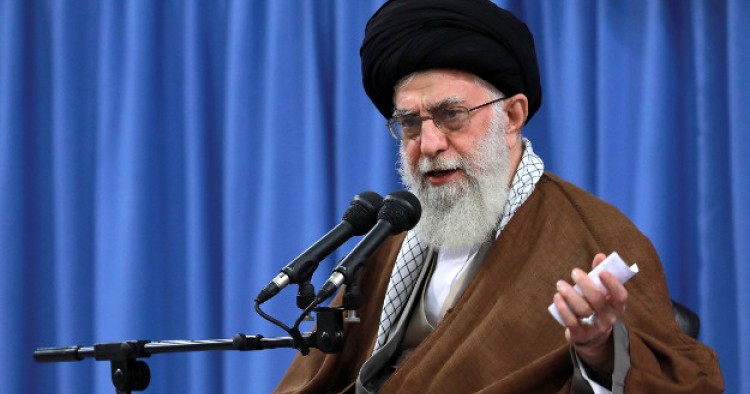Iran’s Supreme Leader Ali Khamenei has agreed to pardon or commute the sentences of 631 Iranian convicts, the Iranian media reports. The “clemency” was suggested by Iran’s Judiciary Chief Ayatollah Sadegh Amoli Larijani on the occasion of a Shiite religious event and ahead of the anniversary of Iran’s 1979 revolution. The convicts were mostly from Iran’s revolutionary courts, the Judiciary Organization of the Armed Forces and the State Discretionary Punishment Organization.
Comment: It is customary for Khamenei, who has the last say in all state matters, to pardon prisoners ahead of national and religious days to show kindness and forgiveness. But his insincere and symbolic gesture does not placate the majority of Iranians who have been subjected to the regime’s brutal repression in the past 38 years. The Islamic Republic lacks an independent judicial system and the head of Iran’s Judiciary is directly appointed by the Supreme Leader. According to Human Rights Watch, the Iranian Judiciary and the country’s security and intelligence forces enjoy “wide powers” and are “the main perpetrators of rights abuses” in the country. Most Iranians who are tried at revolutionary courts do not have access to lawyers and their charges often are unannounced; thus it is conceivable that many of those pardoned were innocent at the first place.
The Middle East Institute (MEI) is an independent, non-partisan, non-for-profit, educational organization. It does not engage in advocacy and its scholars’ opinions are their own. MEI welcomes financial donations, but retains sole editorial control over its work and its publications reflect only the authors’ views. For a listing of MEI donors, please click here.













